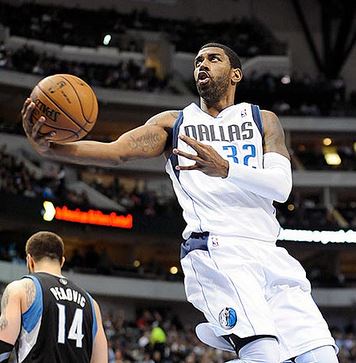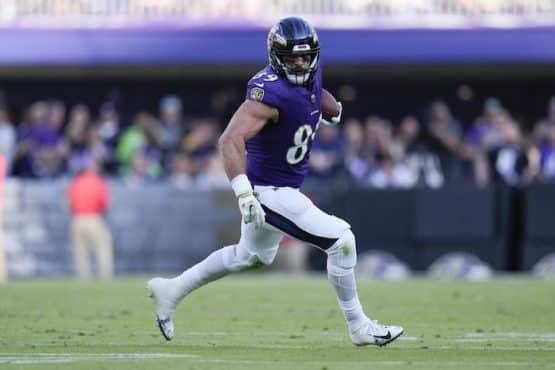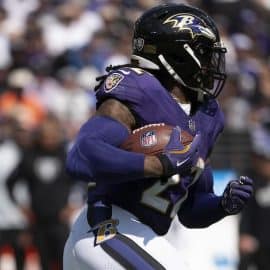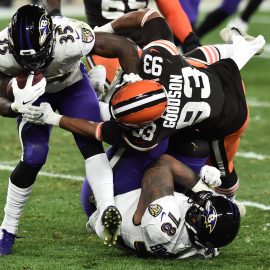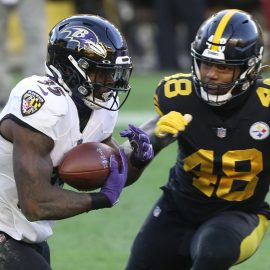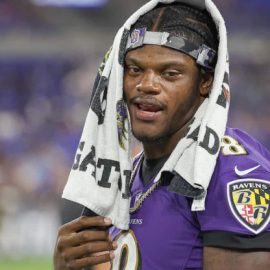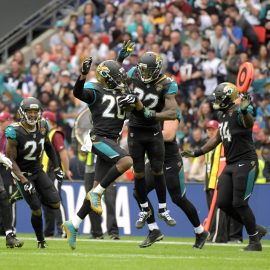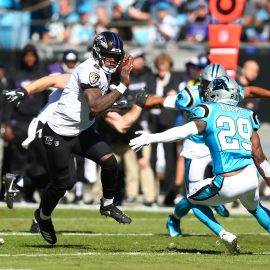Almost overlooked in the Ravens' run to Super Bowl 47 is the small miracle that defensive coordinator Dean Pees worked to bring his extremely damaged unit back from the brink of extinction.
A mere six weeks ago, Pees oversaw a group of men that was banged up and down to its last line of reserves. It helped that Terrell Suggs and then Ray Lewis were able to return from the limbo of injured reserve. But Pees should get the credit for coordinating the comeback of the defensive unit as a whole.
Pees spoke at length with the Baltimore media two days prior to the Ravens charter jet leaving for New Orleans. Here are some nice little pearls he tossed us:
Can you talk about what DT's Haloti [Ngata] and [Ma’ake] Kemoeatu brought this year? (Jim Corbett) “First of all, they are experienced veterans. That’s part of it, because we have a bunch of other young linemen up there with Arthur [Jones] and Pernell [McPhee] and DeAngelo [Tyson] and all those guys. We are really pretty young, expect for those two guys. One thing they bring is in the classroom is the experience of how to be a pro, how to study, how to watch film, how to do all those things, plus that … Then you add onto that their physical ability. They’re two big guys that can kind of hold forth in there. They have done a great job. I’d say it is a combination of both of those things.”
What does it mean to you to go to the Super Bowl? You follow a great line of Baltimore Ravens’ defensive coordinators, and you are only the second to make it this far? (David Ginsburg) “I didn’t even really know that, to be honest. I know the coordinators; I didn’t know there had only been two. That stuff means nothing to me. I don’t really care who was here, how well they did. I don’t care how they did statistically. That stuff really means absolutely nothing. I come in here to do this job – do the best job that I possibly can. That’s it. Every year is a different year. Sometimes you just have a great amount of talent. Some years you go through and you never have any injuries. Some years you go through and you have injuries. My job is to do the best that I can every Sunday – whether sometimes that looks like it, I know that I’m doing that or trying to do that. That’s all I ever pay attention to. All the rest of that stuff means … History means nothing. It’s just all what means right now is what I can do right now to help our team win.”
How big of a challenge has this year been for you with all the different injuries, all the different changes that you have had to make? How challenging is that? (Ryan Mink) “Actually, it’s been fun. In some ways, it’s challenging, but in some ways it’s fun, too, because each week you have to look at maybe this guy is out or a couple of guys are out or a lot of guys are out. You had to kind of figure out who you can put where and how can you use them. Sometimes, that’s kind of fun rather than doing the same thing week-in and week-out. I’m not saying that I didn’t want to have everybody back, but along with the challenge, it’s kind of fun to draw some things up and try do things a little differently and still try to get the job done. In some ways [it was] challenging, but in some ways [it was] very rewarding, too.”
It wasn’t always fun in some of those early on weeks? (Ryan Mink) “No, some of the early on weeks … The biggest problem that we had – and I take the blame for it – is trying to do exactly what we had done in the past without really looking at, ‘Can these guys do what has been done in the past?’ When you take over and you’ve been doing the same thing really for three coordinators in three years, you don’t really want to change a whole lot of things up. And you’ve had success, and all of a sudden you come in and say, ‘OK. I’m going to change a bunch of things up.’ Everybody is kind of like, ‘Why? We are pretty darn good.’ You don’t want to do that, but then you start realizing that this is not quite the same group of guys that we had a year ago doing the same thing. After we got through the break, I think we really changed as a defense and for the better. Maybe I should have seen that a little earlier, but I didn’t, but at least we saw it.”
Can you talk about the appreciation for Ozzie [Newsome] because of all the injuries he was able to funnel you guys who we were still able to get the job done despite missing so many of your starting parts. (Pete Gilbert) “Yes, the bottom line here is that I think when you have a good organization, and especially a good locker room, I can’t say sometimes say enough about … Everybody in this league has talent. Who doesn’t have talent? Sometimes the difference between the team making it and the team not making it is the locker room and the classroom and the guys – not that everybody doesn’t study – but not everybody takes it as serious as other guys do. When you have veterans like Ed Reed and Ray Lewis and Haloti Ngata and ‘Kemo’ [Ma’ake Kemoeatu] and those guys, the young guys learn how to study. When those guys’ time comes, they are really kind of prepared for it than the guy that sits there and pays absolutely no attention because, ‘I’m never going to play, because I’m behind Ray Lewis.’ In our case, you had to be behind Ray Lewis, behind Jameel McClain and behind [Dannell] Ellerbe. All of a sudden, it’s Josh Bynes, it’s Albert McClellan, Omar Brown – all these guys who started playing that were not second team. They were maybe third or fourth in the depth, but they all learned from the guys in the beginning who didn’t accept them just sitting there in a chair. To me, that’s all part of the organization, from [general manager, executive vice president] Ozzie [Newsome], from Steve [Bisciotti], from everybody on down of how we operate around here, especially with John [Harbaugh] as our head coach. That’s how we operate.”
When it comes to a running quarterback like [Colin] Kaepernick, a lot of people are looking back to the Redskins game and some of the players have pointed back to Michael Vick. You’ve had some chances to face mobile quarterbacks like this before. How much are you going to draw on those experiences going into this? (Mark Zinno) “Hopefully a lot and try to eliminate some of the negative things that we did in both of those games. He probably is a good analogy. He is probably a good combination of both of those guys in some ways. He’s not exactly like either one of them, but he has traits that are similar to both. Certainly, we have looked at both of those games, and we will try to correct the things that we didn’t do very well in both of those games.”
Was it just a matter of you were asking guys to do a little too much, stuff they just weren’t capable of doing early and that was one of the things that you changed? (Jeff Zrebiec) “Yes, a little bit of that. That was part of it. I thought we were asking guys to do maybe some things that they weren’t particularly good at. But, I also felt like we weren’t as disciplined as a football team defensively as we needed to be early on either. There were some times that we had chances to make plays, and our eyes weren’t in the right spot, or we weren’t in the right position – not as good of a discipline. We corrected that and got a lot better at that.”
I know you aren’t about history necessarily, but what about the physical nature of the Ravens’ defense. Do you address that at all? It’s long been known that it’s one of the toughest. How important is that to you to have a defense with that reputation? (David Ginsburg) “It’s very, very important. That’s very important, whether it be the Ravens’ defense or any defense, that I think you would coach that you want to be physical. I think that was some of the stuff that we pointed out on film early on, too, that if you are in the right position, you can be physical. If you are not in the right position, it’s hard to be physical, because you are usually chasing the guy instead of hitting the guy front up. I think we tried to address all of those things. I thought we got more physical as it went on. I know sometimes … I don’t know where we are, because I don’t pay a whole lot of attention to it … I’m sure we are up there on defensive roughing penalties somewhere. I’m sure we are at the top of the list. I don’t want to say that I don’t care; I do care. I don’t ever want to get a penalty, but sometimes those penalties you think twice about coming over the middle whether you got a penalty or you didn’t get a penalty. They all take their toll. I’m not saying that I want penalties or I want to hit somebody like that, but at the same time, we aren’t going to back off. We are going to play football.”
How special is it to you to have overcome all of this and to be going to the Super Bowl this week? There was so much you had to do this year to get this thing right. (David Ginsburg): “Well, it’s really special. It’s really special, because not only for me, for the coaching staff, defensive staff, they don’t get mentioned a whole lot, and they should. It’s just all of us, and it’s a combined effort between the players and the coaching staff, every week sitting down and putting together a plan and then the players believing in that plan. So, it’s very, very special.”
And then, after affirming he did not want to be a head coach, because it would take away from what he loves best–calling defenses, playing ball and having fun with his players— Dean Pees said goodbye and was off to New Orleans.
Add The Sports Daily to your Google News Feed!
